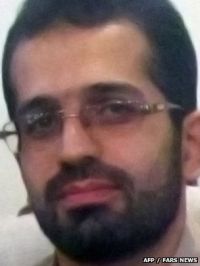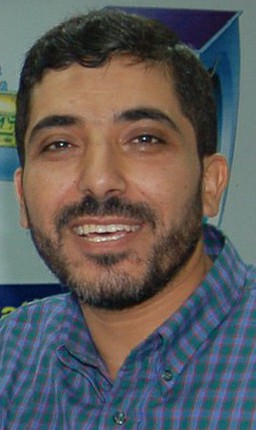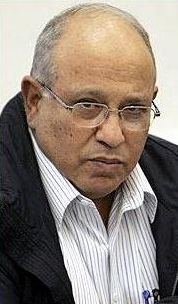In the war of nerves between Washington and Tehran, the U.S. enjoyed a couple of moves this week that reinforced America’s preferred image as homeland of the good guys. The U.S. Navy rescued Iranian fisherman not once but twice, while Iran sentenced an American to death.
Is it likely that anyone in Washington would want to spoil this good guys/bad guys story by exploding a bomb in its midst?
An Associated Press report suggests that when it comes to Iran the U.S. now prefers to outsource the dirty work to “proxies like Israel.”
Since when did Israel serve as a proxy for the United States?
When the Obama administration meekly requested the Israelis to promise that they would not unilaterally launch an attack on Iran, the Israelis declined. That’s not how a proxy operates.
Indeed, since the threat that Iran supposedly poses is much more to Israel than the United States, it’s pretty clear that it is the U.S. that serves as a proxy for Israel — not the other way around.
With that in mind, this passage from the AP report is worth noting:
Current and former U.S. officials say Washington prefers proxies like Israel to carry out operations inside Iran, and that up until two years ago, the U.S. and Israel coordinated actions against Iran closely. But the officials say the White House halted such cooperation after Israeli Prime Minister Benjamin Netanyahu took power.
The officials, past and present, spoke on condition of anonymity to discuss sensitive strategic negotiations.
In the event that a military intervention might be needed to halt Iran’s progress toward nuclear weapons capability, they said counterterrorist officials had considered allowing Israel to use the U.S.-Afghan Shindand Airbase, in western Afghanistan, to launch an air strike against Iranian weapons facilities.
The White House won’t cooperate with Netanyahu — now there’s a story ready-made for GOP presidential candidates to jump all over.
Officials considered (note the past tense) allowing Israeli jets to operate out of Afghanistan — however implausible that might be, it’s certainly an idea the Israelis would welcome getting spread around.
Again, enter Republican candidates solemnly pledging that under their administration, Israel will have the right to use U.S. military bases in Afghanistan (or probably anywhere else on the planet for that matter).
There’s a theme here and it’s about who controls the narrative.
Perhaps the clearest indication of who is not in control of the narrative came out of the State Department this morning.
Spokesperson Victoria Nuland responded to questions:
QUESTION: You probably have seen the news that an Iranian nuclear scientist was killed. I wonder what your reaction is. Would you condemn this killing?
MS. NULAND: We’ve seen the reports of the death of the Iranian scientist as a result of an apparent bombing. We condemn any assassination or attack on an innocent person, and we express our sympathies to the family.
QUESTION: The Iranians have accused Israel and the United States of carrying out this killing. Any truth to that?
MS. NULAND: I don’t have any information to share one way or the other on that.
QUESTION: You don’t want to deny killing him?
MS. NULAND: Obviously, we – as I said, we condemn the loss of innocent life.
QUESTION: That’s not a denial as such.
MS. NULAND: I’m not prepared to speak one way or the other. I, frankly —
QUESTION: You didn’t want to deny it.
QUESTION: Would the scientist come under innocent life?
MS. NULAND: Say again?
QUESTION: Would the scientist come under your definition of innocent life?
MS. NULAND: Again, I don’t think I have anything further to say on this, that we condemn violence of any kind.
QUESTION: Don’t you think he’d be a logical target, given the pressure from Israel and the U.S. against —
MS. NULAND: I’m not going to speak to who may or may not have done this, one way or the other.
QUESTION: Why are you not willing to rule out that the United – I mean, the United States did not – they’ve alleged this. Why are you unwilling to say, “Of course we didn’t do this. We don’t —
MS. NULAND: Well, first of all, I don’t think this Department has any information further to what I’ve already said, which we condemn the loss of innocent life.
At this point a footnote has been added to the transcript: “The United States strongly condemns this act of violence and categorically denies any involvement in the killing.” No attribution is given for this sentence, though it echoes Secretary of State Hillary Rodham Clinton who told reporters today: “I want to categorically deny any United States involvement in any kind of act of violence inside Iran.”
Assuming that Clinton’s denial was not a bald-faced lie, it seems reasonable to infer that as is widely believed, this assassination (and previous ones) have been conducted under Israeli direction. Nuland’s unwillingness to say anything probably reflects a number of things:
- That administration officials do not want to create the impression that the U.S. is the junior and less informed partner in the indivisible relationship with Israel;
- that administration officials do not want to reveal any lack of enthusiasm for Israel’s covert operations in Iran;
- and that silence is sometimes the only way of fabricating the illusion of unity.
Israel on the other hand, enjoys the fact that even while its international image whithers, it has no shortage of proxies available in the U.S. to help push its own narrative on Iran — through the press and through the presidential election.


 On a cold Ukrainian winter night in mid-February 2011, a Gaza civil engineer named Dirar Abu Sisi was lying in bed in a railroad sleeper car traveling to Kiev to visit his brother, Yousef, whom he hadn’t seen in 15 years.
On a cold Ukrainian winter night in mid-February 2011, a Gaza civil engineer named Dirar Abu Sisi was lying in bed in a railroad sleeper car traveling to Kiev to visit his brother, Yousef, whom he hadn’t seen in 15 years. In a feature article for GQ Magazine,
In a feature article for GQ Magazine, 